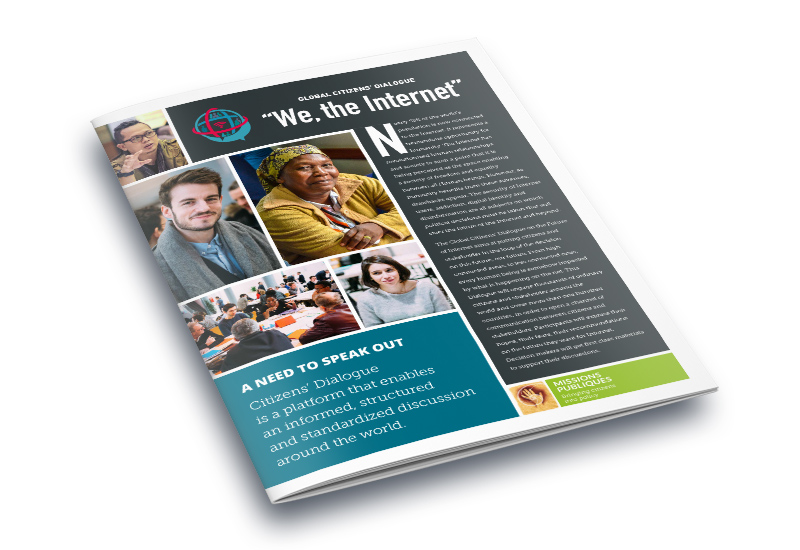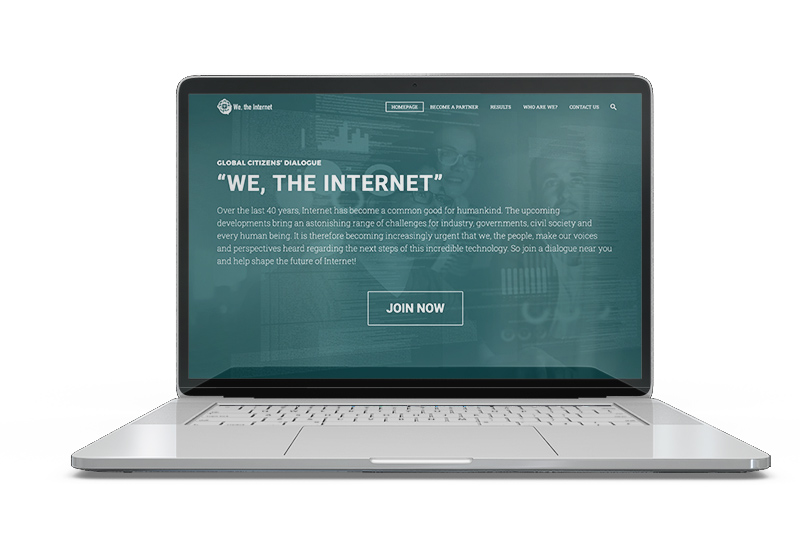CONTEXT AND GOALS
Almost 55% of the world’s population now has Internet connection. This is a real opportunity for humanity, but also an unprecedented challenge, especially in terms of security, equality and even truth.
Every digital innovation raises its share of questions and debates for the whole of society: businesses, governments, civil society but also for each of us individually. It therefore seems legitimate to include all these stakeholders in discussions to understand all their hopes and needs and to create an Internet that is understandable, accessible, and useful for all.
PROCEDURE
The project began in 2018 with pilot workshops in more than 12 countries around the world exploring the issues that are most important to citizens. The process was pursued and elaborated in 2019 with a series of five workshops, one on each continent, looking in greater depth at two key topics: disinformation and digital identity. The results of these five workshops were collected, analyzed, and presented at the 2019 Internet Governance Forum. In 2020 we are scaling up the process in more than 100 countries, with discussions held on a single day and following a single method. In addition to the citizens’ forums, there will also be workshops with stakeholders as part of the UN High Level Panel process.
OUR ADDED VALUE
“We the Internet” is the first debate of its kind to engage a coalition of strategic stakeholders brought together by Missions Publiques and representing the key players in the field: international organizations (UNESCO, European Commission, Council of Europe) governments (Germany, Switzerland), the private sector (Google, Facebook, Mozilla), civil society (The Internet Society, Web Foundation, Wikimedia Foundation, Particip’action), and the scientific community (WZB Berlin, Arizona State University for example).
The project establishes a dialogue between stakeholders, decision-makers, and citizens of the world.
OUTCOMES
“We the Internet” has proven that the future of Internet is a subject to be debated with citizens. The outcome of the preliminary dialogues in 2018 put the participants’ agenda on the table. That year, the participants brought up the question of the environment and this has now been officially added to the agenda of the Global Internet Governance Forum to be held in Poland in 2020.
The pilots run in 2019 produced some clear results on the issues of digital identity and disinformation.
KEY FIGURES
DELIVERABLES
Reports from the citizens’ dialogues held around the world are used to create publications with stakeholders, experts, and researchers. The results are then shared worldwide as part of our impact strategy. Some examples below:





